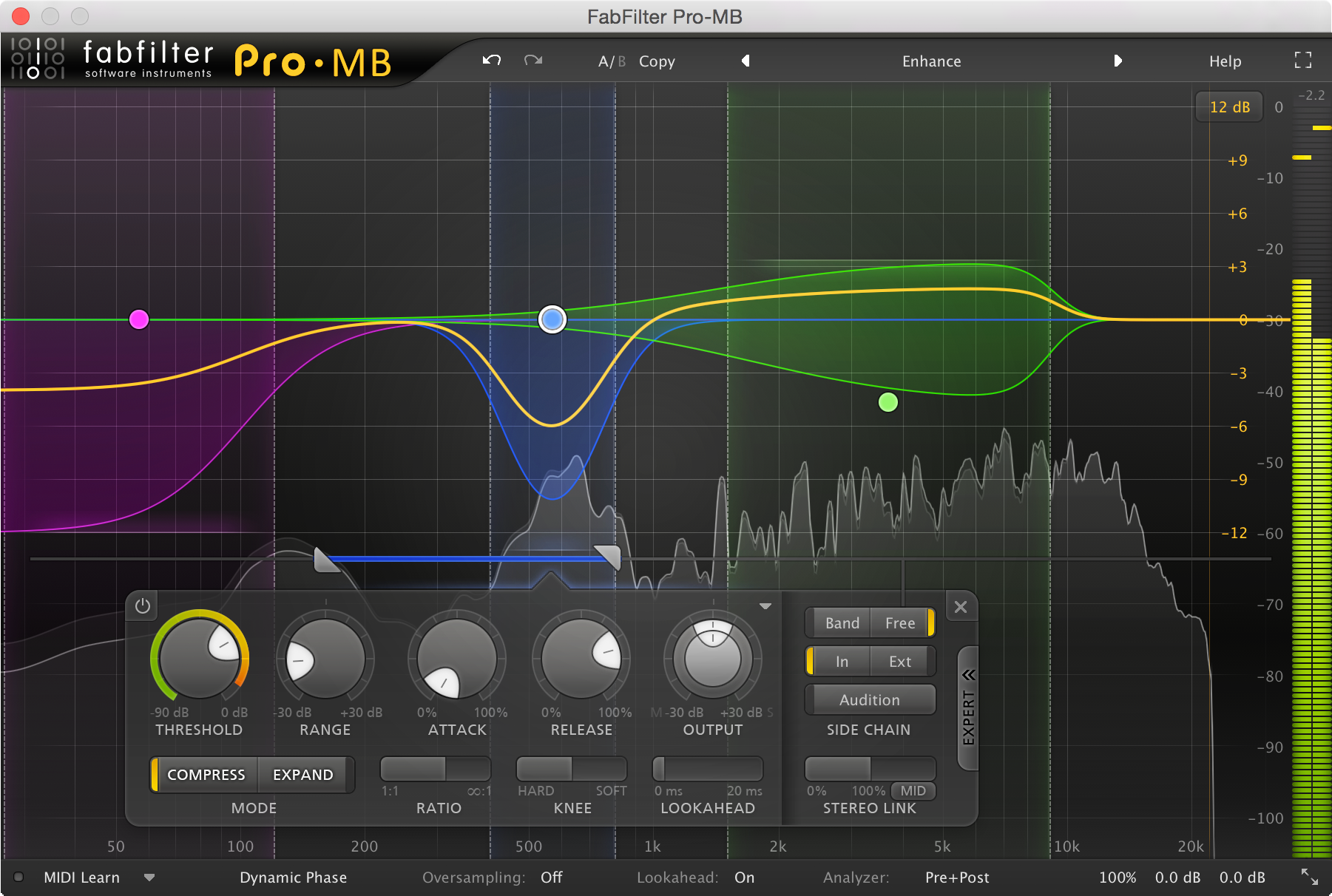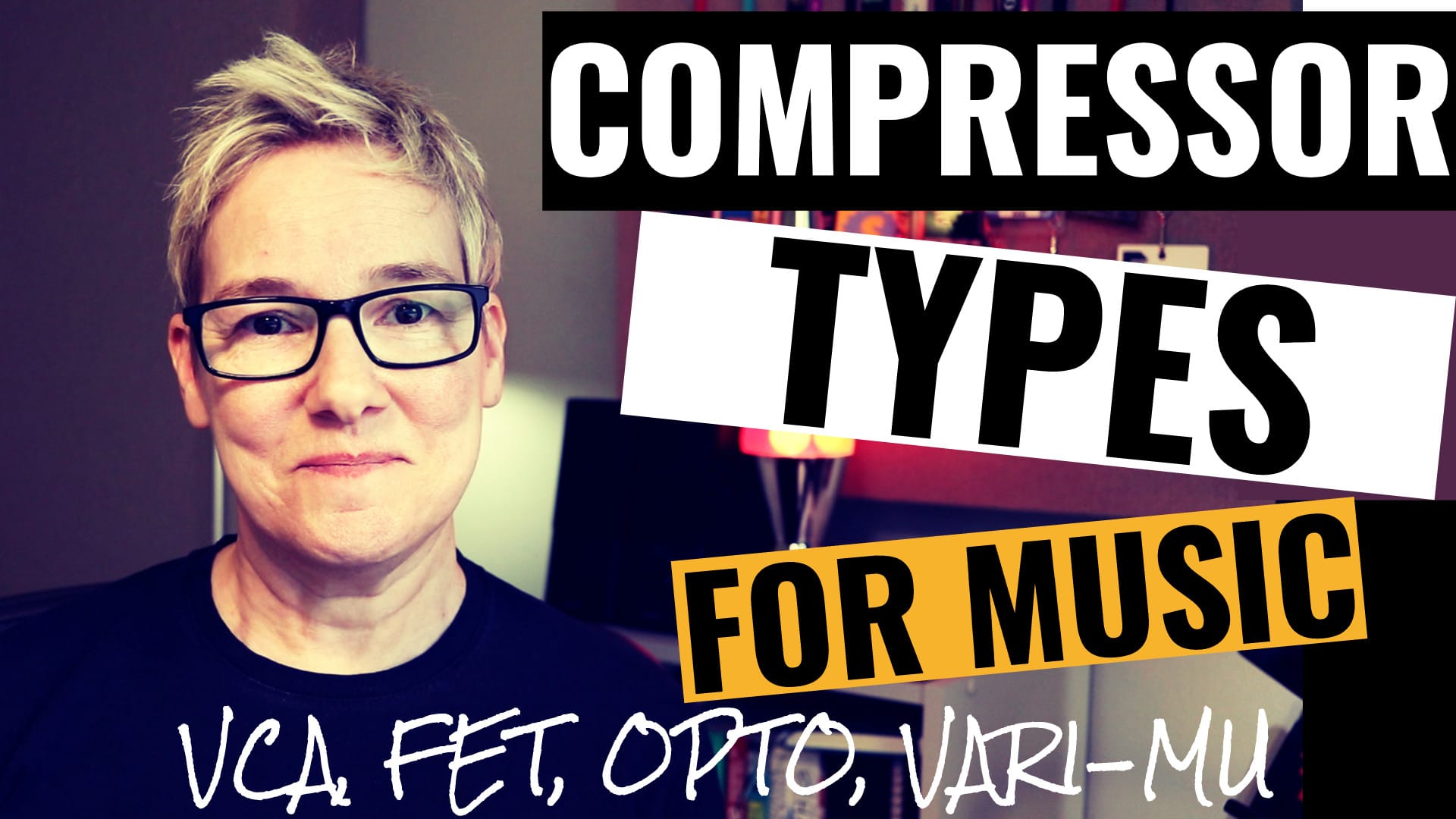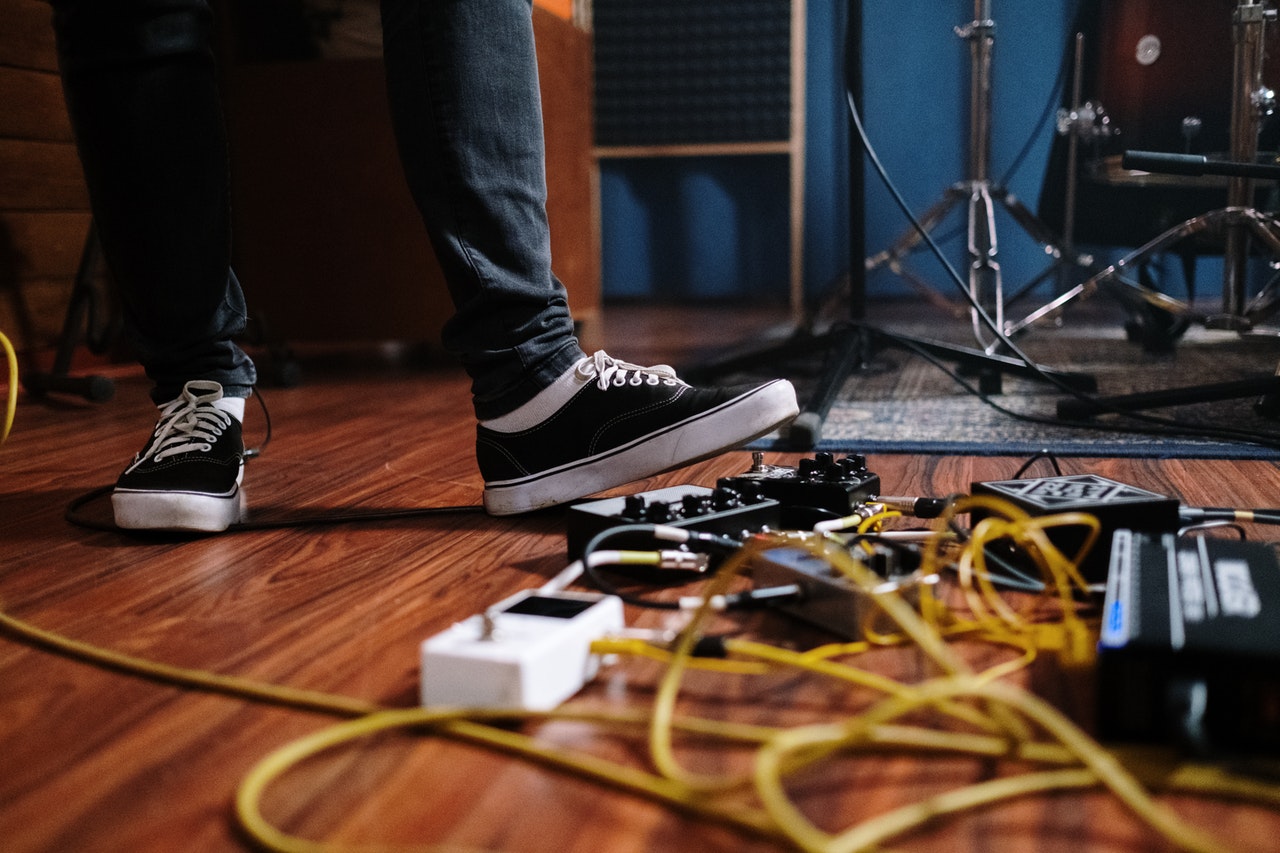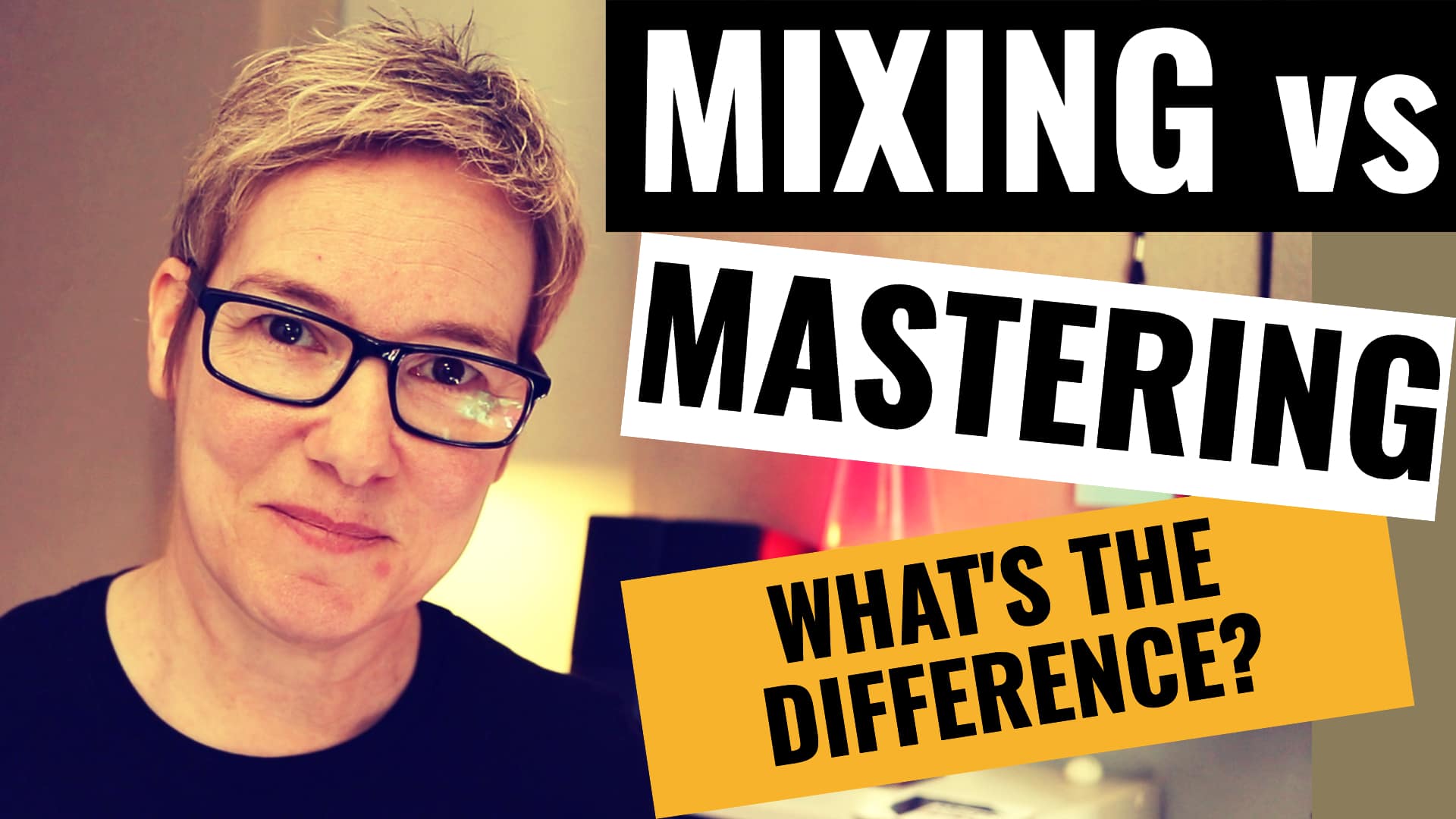It’s just making it louder, right?
Well… no, not really although – it might be!
That’s not very helpful is it? What is mastering then?
Well, what I mean is, depending on how good the source material is, might actually mean you just need it making louder to get nearer to other commercial songs in its genre. Job done.
The mistake many new mastering engineers make is changing things because they feel as though they should, by trying to find something to fix but if the mix is spot on and the studio has its monitoring dialled in and the recording was great, then often, there’s nothing for the mastering engineer to do. If it ain’t broke, don’t fix it!
There is still value in the mastering engineers opinion and experience if that’s the case. There’s peace of mind in knowing that there’s nothing wrong in the mix that you might regret after your music has been published, like the hi-hat louder than the guitar solo or low end rumble that will blow out your cars subwoofer.
Mixing Vs Mastering
I keep making the mistake of assuming that everyone knows what mastering is. It’s only when I talk to “laypeople”; people who aren’t in the music business, that I realise that they haven’t a clue what I’m talking about and so, I need to take a step back and explain. Whoops, my bad.
Musicians of course have a better chance of knowing, or at least having some idea of what mastering actually is in the record making process, versus mixing but still, some don’t and that’s ok!
Let me help you get a grasp of the process and decide if it’s something you actually need for your music.
Read on…
So, what does a mastering engineer do?

As I said at the start, your mastering engineer might not do anything apart from listen to the mix with their enhanced listening skills and experience then, give it their seal of approval.
Chances are, they’ll then use some specialist plugins and outboard equipment to increase its loudness to a specified range so that it will playback at a similar level to other commercially released music, whilst keeping the mix intact and not squashing it so it sounds like crap.
Most of the time however, a mix can benefit from a little bit of work with EQ and other tools and techniques to bring a little depth and clarity that can take your mix to the next level.
The tools I’m mainly taking about are:
- EQ
- compression
- saturation
- multiband compression
- parallel compression
- stereo width
- clipping
Equalisation (or EQ to you and me)

What I’ve found in my experience is that EQ is the main tool to use that brings the biggest audible difference.
More music is being produced in home studios now than ever before and this brings with it certain limitations in monitoring and acoustics that sympathetically finds its way into the EQ profile of the mix.
If there’s something going on in your mixing room that make your monitors sound full of bass, then you might end up compensating for that by cutting bass in your mixes. It sounds good in your room but when played back in a room where the frequency spectrum is more balanced due to some properly considered acoustic treatment, or played back on a high end hi-fi system, the result is your mix sounds cold, harsh and thin.
Mastering EQ can help correct that by bringing some of that bass back. Conversely, if your mixing speakers are bright sounding, your mixes could end up sounding dull out in the real world.
A good mastering engineer will ask if it’s possible to go back to the mix and correct certain EQ problems there. The main culprit being sibilance in the vocals.
Whilst it’s possible to tackle sibilance in mastering, it will be to the detriment of everything else especially guitars, snare and cymbals.
If you’re not sure if your track is ready for mastering, you can always ask your mastering engineer to listen to it first. Many engineers, including me, offer a free sample or mix consultation, so why not take advantage of their offer before committing to your final mix?
Tools
Many of the tools mentioned earlier could take up an entire post in their own right and some day they might (stay tuned!).
Generally speaking, a good mastering engineer knows which tool to use to address a particular problem (or desired outcome) and every song has its own unique problems. Some songs more so than others.
The tool I least like using is multiband compression. Used incorrectly, Multiband compression can ruin a mix and if I have to use one I tend to use it gently and sparingly because inevitably, it will change the mix and I don’t want to change a mix that the mix engineer and producer have spent hours, days or weeks crafting. If possible, I’d rather go back to the mix and change something there, than resort to using a multiband compressor.

My main application for Multiband compression is to tighten up a flabby sub low end to stop it hitting the final limiter too hard, therefore, keeping the overall tonal balance consistent and enabling a louder master.
Respect the Multiband, learn how to use it and it won’t bite you in the bum!
Well, my mix sounds ok to me, do I really need to get it mastered?

Let’s say, you’ve got a mix that you’ve either done yourself or had done professionally and you’ve done all the things you’re supposed to, like:
- listened to it on your iPhone
- listened to it in the car
- listened to it on a “good” hi-fi
- put it in a playlist alongside similar commercial music
- listened outside the room
- listened on headphones you know
- compared it to the references you gave to the mixer
- asked your friends for their opinions
- asked your Mum what she thinks (she loves it of course)
Based on those things, you’ve made a few changes and you think it’s ready to release.
Everyone loves it, you think it sounds awesome everywhere… you think. I mean, you’ve heard it a million times by now but you think it’s ok. Well, your Mum thinks so.
Unfortunately, the song might still have issues because of the limitations of your domestic equipment and studio monitoring environment. Plus, you might not have enough experience yet to even hear these issues, regardless of the number of systems you’ve used to listen to the song.
So, should I have my music professionally mastered?
Consider this: every song you hear in the charts has been professionally mastered.
There’s a reason for that. It’s a vital part of quality control that ensures your music can sound the best it can possibly sound and comparatively, stand up to its peers and be unconsciously interpreted as “professional” by the listener.
It’s a fact that if something sounds louder, it is perceived as sounding “better” than the previous playlist track. In fact, your mix might be tons better than the preceding track but if it’s 1dB or even 0.5dB quieter, your listener will think it doesn’t sound as good.
This is not the best news of your day I’m guessing, but it’s not all doom and gloom.
Thankfully, the importance of loudness is slowly becoming irrelevant.

The major music streaming platforms today, each have a specification whereby they will turn down the level of all songs to match that specification. To complicate matters, each platform has its own specification.
The reason they have all adopted a loudness specification is to counteract the number one complaint from their listening clients which is the sudden jumping up or down in levels between songs, resulting in them having to adjust the volume to compensate or rip their earbuds out as fast as humanly possible.
Why should you care? Slamming your mix into a limiter to get it loud will destroy the dynamic range. Dynamic range being the difference between the loudest and quietest parts of your mix, therefore, you’re sacrificing the impact potential in your music and losing excitement. Why bother, when it will be turned down automatically anyway? Keep the dynamics!
The result of submitting a very loud master to the many digital services means that even though your mix is the same level on the meters as all the others on the platform, it can be PERCEIVED as quieter because of the lack of dynamic range.
The bottom line is, let the mastering engineer worry about loudness and you worry about building dynamics and energy into the mix.
TL; DR
What is Mastering?
By choosing wisely and having your mix mastered by a reputable mastering engineer, who is either recommended to you or has great reviews is the best way to be sure that your song or album is ready to be released into the world and will sound great.
Mastering can bring clarity to muddy mixes, create separation between instruments, add width and loudness. It can possibly clean up any noises that may have found its way into the track.
Mastering will add track metadata, like ISRC codes, that ensure you will get your royalties if the song is picked up on the radio or on TV or in a movie.
Mastering will provide you with the means to send your EP or album off for replication or duplication onto CD or vinyl with suitable gaps and with the tracks in the correct sequence.
Mastering works with the stereo mix, whereas mixing is more granular and works with the individual multitracks and takes a lot longer.
Myth Buster: Mastering cannot fix a bad mix. If the mix is poor then mastering won’t fix it.
Before you go…
If you have any thoughts or questions about mastering then I’d love to hear from you!
It costs nothing to drop me an email to talk about the process or chat about what you are looking to achieve during your next mastering adventure.
My mastering service is quick and friendly! I offer a free mastering sample so you can test drive the product before you part with any cash and this offer comes with no obligation to buy, so you’ve nothing to lose!
Just know that I try to work as transparently as possible by not effecting the mix balance (unless it needs it) and I like to keep my masters to around -8 RMS maximum and retain as much dynamic range as possible for maximum impact and excitement whilst still being loud enough to be slightly turned down by the streaming platforms.
If you are interested in having me master your music and are wondering how to prepare your mix then check out my blog post how-to-prepare-your-mix-for-mastering-by-a-mastering-engineer
You might be researching various online mastering service websites and need to cut through all the jargon and extra fees for this, that and the other. If so, download my FREE guide that gives you the questions to ask any mastering service to ensure you get the correct file formats for your needs without getting stung for extra charges later down the line.
To learn more about my mastering service, then you can go to my mastering page or contact me here.
Have any questions about mastering? Drop them in the comments below and then don’t forget to sign up to my newsletter to get notified when a new post is published and get exclusive subscriber only special offers!





